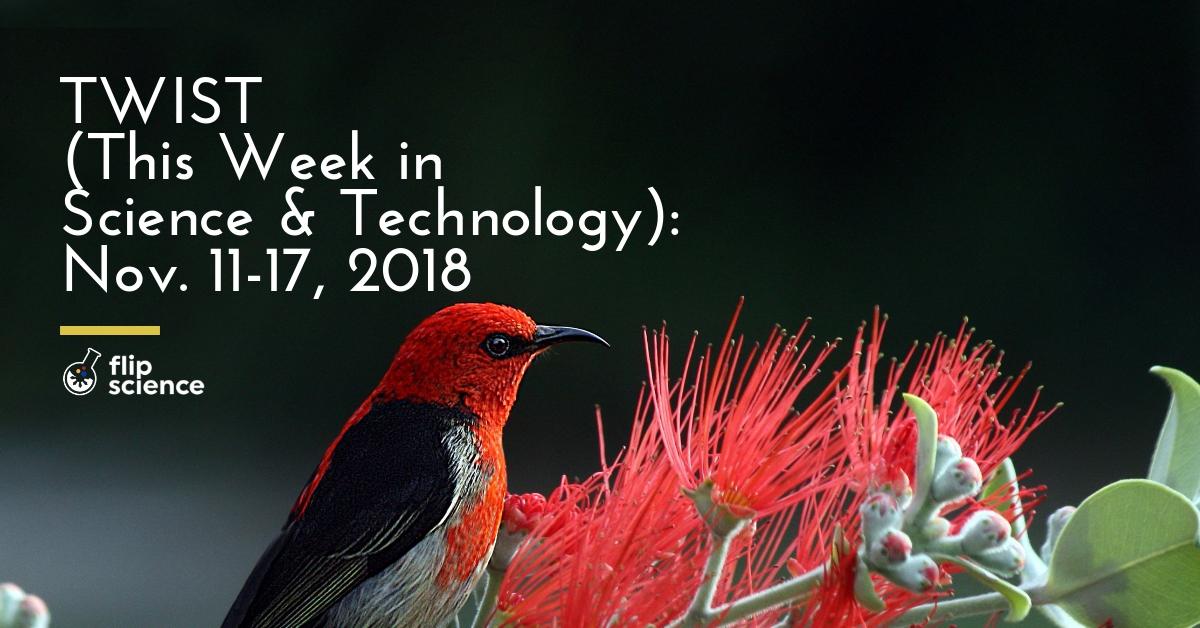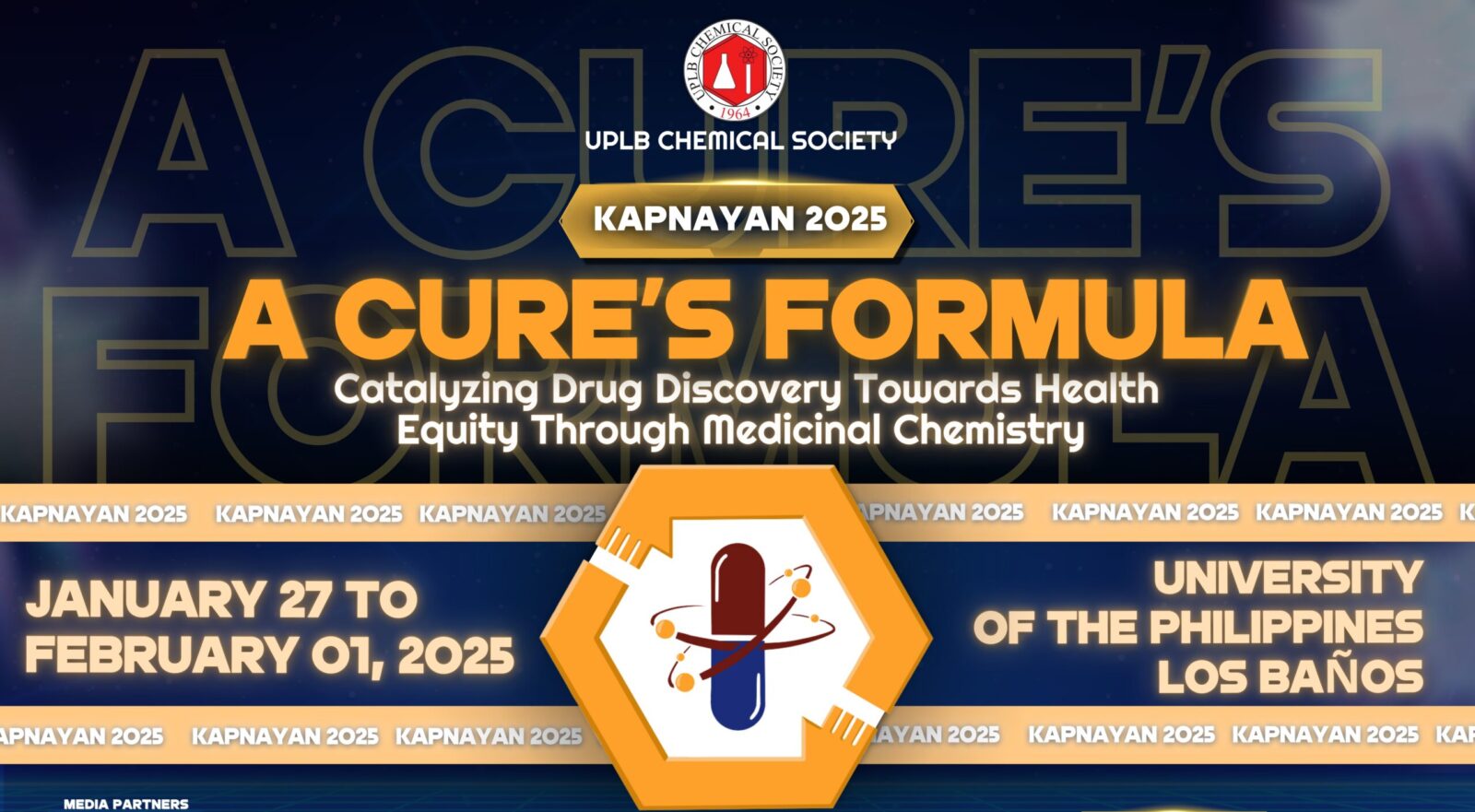ICYMI: A handful of science and technology updates from November 11 to November 17, 2018.
Nat’l Biotech Week 2018 spotlights science, solutions, and social awareness
The National Biotechnology Week is an annual celebration of biotechnology in the Philippines, officially set every third week of November by Presidential Proclamation No. 1414. The celebration highlights the role of biotechnology across vital sectors in the Philippines, from agriculture to the youth. The 2018 NBW happens from November 13 to 17 at the World Trade Center in Pasay City.
In line with this year’s theme (Pambansang Hamon, Pambansang Solusyon), various government agencies, non-government organizations, and academic institutions participated in a series of exhibits and activities designed to promote biotechnology awareness. In addition, are relevant science and technology fora and career talks, film screenings, a science journalism writeshop, and competitions for creatives and the scientifically inclined.
A Nobel laureate, Sir Richard J. Roberts, will come to the Philippines on November 19 as part of NBW’s culminating activity.
“Overcrowded” El Nido, Palawan to be rehabilitated
From Rappler:
After Boracay reopened its shores following a 6-month closure, another top tourist destination is up for rehabilitation.
In a press briefing on Wednesday, November 14, Tourism Secretary Bernadette Romulo Puyat described El Nido, Palawan, as “overcrowded.”
Puyat said she noticed there were too many kayaks and boats, which resulted in pollution.
She said government agencies will come up with a study similar to the one done for Boracay, which would determine El Nido’s carrying capacity.
Weasel-like fossils reveal clues on first mammals’ evolution
From the Smithsonian Magazine:
Nine years later, the secret of this skeleton finally became known. In 2009, preparator Sebastian Eggberts held up part of the stone surrounding the Kayentatherium skeleton and noticed a tiny jaw. The itty-bitty fossil looked just like the jaw of the adult, and researchers soon realized that there were dozens of baby Kayentatherium fossils contained within the rock samples.
“While we can never be 100 percent certain of the association between the adult and offspring, it seems like the most reasonable interpretation in this case,” says University of Washington paleontologist Christian Sidor. The fact that Kayentatherium and its kin are thought to have been digging animals, Sidor adds, could mean that the adult and babies were buried together in some kind of den.
Preparing the fossil by mechanical means was out of the question once the babies were discovered, lest any tiny bones be accidentally destroyed. Rowe’s lab started making digital scans of the fossil block to see what else might be inside, which became Hoffman’s project in 2016. When she was done, she counted the remains of 38 baby Kayentatherium alongside the adult.
This was quite a surprise. Previous research emphasized how Kayentatherium and its relatives had evolved to become rather mammal-like, Hoffman says, sharing traits with the first shrew-like mammals that appeared about 160 million years ago. But such a large clutch size fits a more reptilian way of reproducing than the typically mammalian method of having smaller litters which receive more parental care.
Waste crisis imminent across Southeast Asia
From National Geographic:
When President Donald Trump signed legislation renewing the federal marine debris program, he blamed Asia for fouling the world’s oceans. He named Japan, China, and “many, many countries” for dumping plastic waste that floats over to the West Coast.
“And we’re charged with removing it, which is a very unfair situation,” he said.
What Trump didn’t acknowledge is that plastic waste polluting the seas cannot be assigned entirely to Asia alone. East and West are inextricably connected by their plastic trash, as wealthy nations sell their recycled plastic scrap to Asia for the simple fact it’s easier to ship it around the world than process it at home.
That convenience was cast in a new light last January, when China, the biggest importer, stopped buying most recycled waste. After 25 years as the world’s salvage king, China refused to buy any recycled plastic scrap that wasn’t 99.5 percent pure–a move that upended a $200 billion global recycling industry with profound consequences on both sides of the world.
China postpones legal tiger bone/rhino horn trade after massive int’l backlash
From IFLScience:
Following a huge international backlash, China has decided to postpone its highly controversial plan to allow the domestic trade of tiger bones and rhino horns.
China’s State Council announced on Monday that the plan “has been postponed after study,” adding that it will continue to strictly ban the selling, purchasing, transporting, carrying, and mailing of rhinos, tigers, and their byproducts.
“Illegal acts will be dealt with severely,” Ding Xuedong, Executive Deputy Secretary-General of the State Council, said on Monday.
“I would like to reiterate that the Chinese government has not changed its stance on wildlife protection and will not ease the crackdown on illegal trafficking and trade of rhinos, tigers, and their byproducts and other criminal activities.”
Cold Super-Earth found orbiting closest single star to Sun
From Science Daily:
The nearest single star to the Sun hosts an exoplanet at least 3.2 times as massive as Earth — a so-called super-Earth. One of the largest observing campaigns to date using data from a world-wide array of telescopes has revealed this frozen, dimly lit world. The newly discovered planet is the second-closest known exoplanet to the Earth. Barnard’s star is the fastest moving star in the night sky.
Why people drink coffee, even though it’s bitter
From Live Science:
It may sound counterintuitive, but people who are supersensitive to coffee’s bitter taste actually drink more of it, a new study finds.
This sensitivity isn’t simply a matter of taste, either, but rather is influenced by a person’s genetic makeup, the researchers said in the study, which was published online today (Nov. 15) in the journal Scientific Reports.
“You’d expect that people who are particularly sensitive to the bitter taste of caffeine would drink less coffee,” study senior researcher Marilyn Cornelis, an assistant professor of preventive medicine at the Northwestern University Feinberg School of Medicine in Chicago, said in a statement. “The opposite results of our study suggest coffee consumers acquire a taste [for] or an ability to detect [the bitterness of] caffeine due to the learned positive reinforcement elicited by caffeine.”
Rare microbes lead to discovery of new branch of life
From CBC.ca:
Canadian researchers have discovered a new kind of organism that’s so different from other living things that it doesn’t fit into the plant kingdom, the animal kingdom, or any other kingdom used to classify known organisms.
Two species of the microscopic organisms, called hemimastigotes, were found in dirt collected on a whim during a hike in Nova Scotia by Dalhousie University graduate student Yana Eglit.
A genetic analysis shows they’re more different from other organisms than animals and fungi (which are in different kingdoms) are from each other, representing a completely new part of the tree of life, Eglit and her colleagues report this week in the journal Nature.







